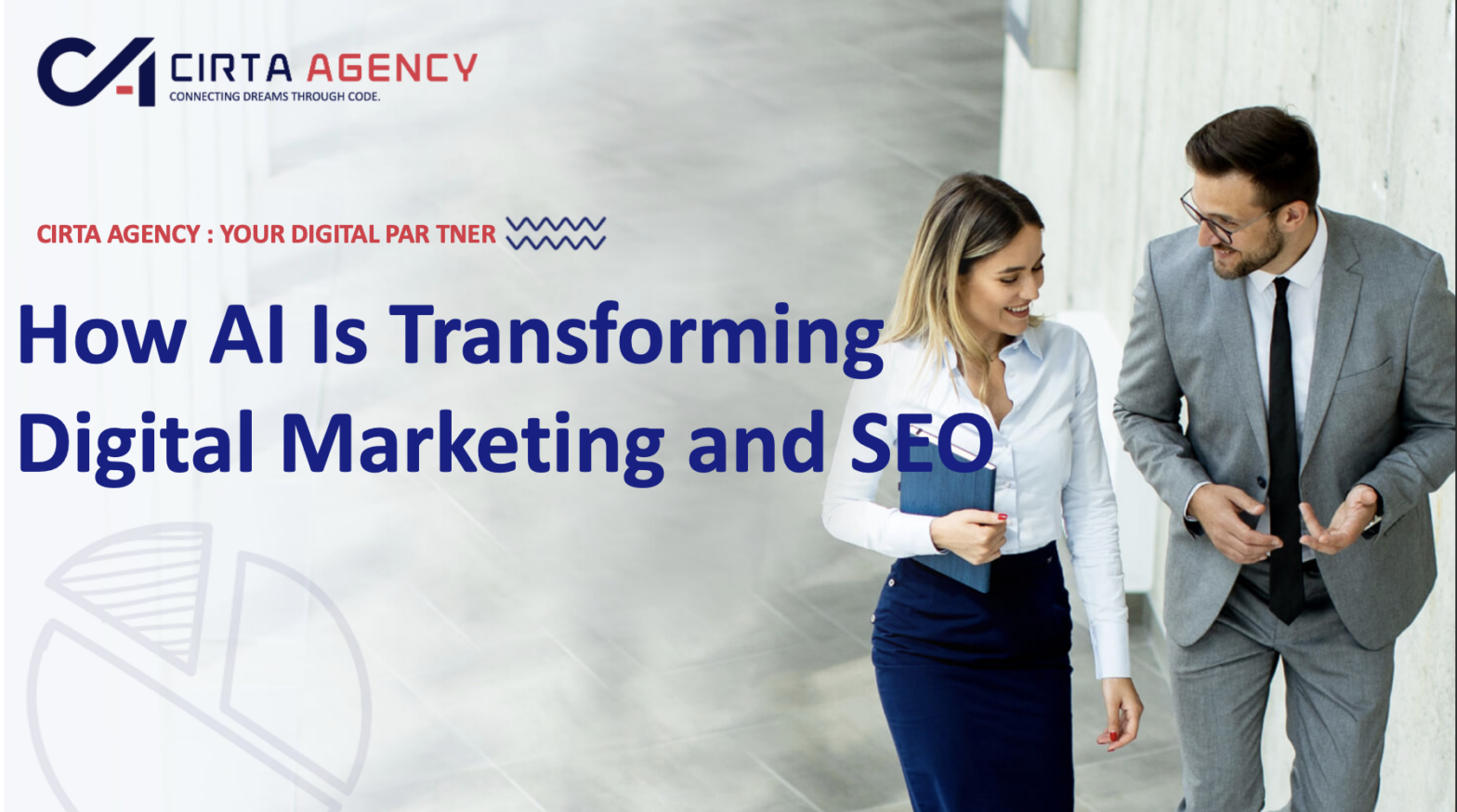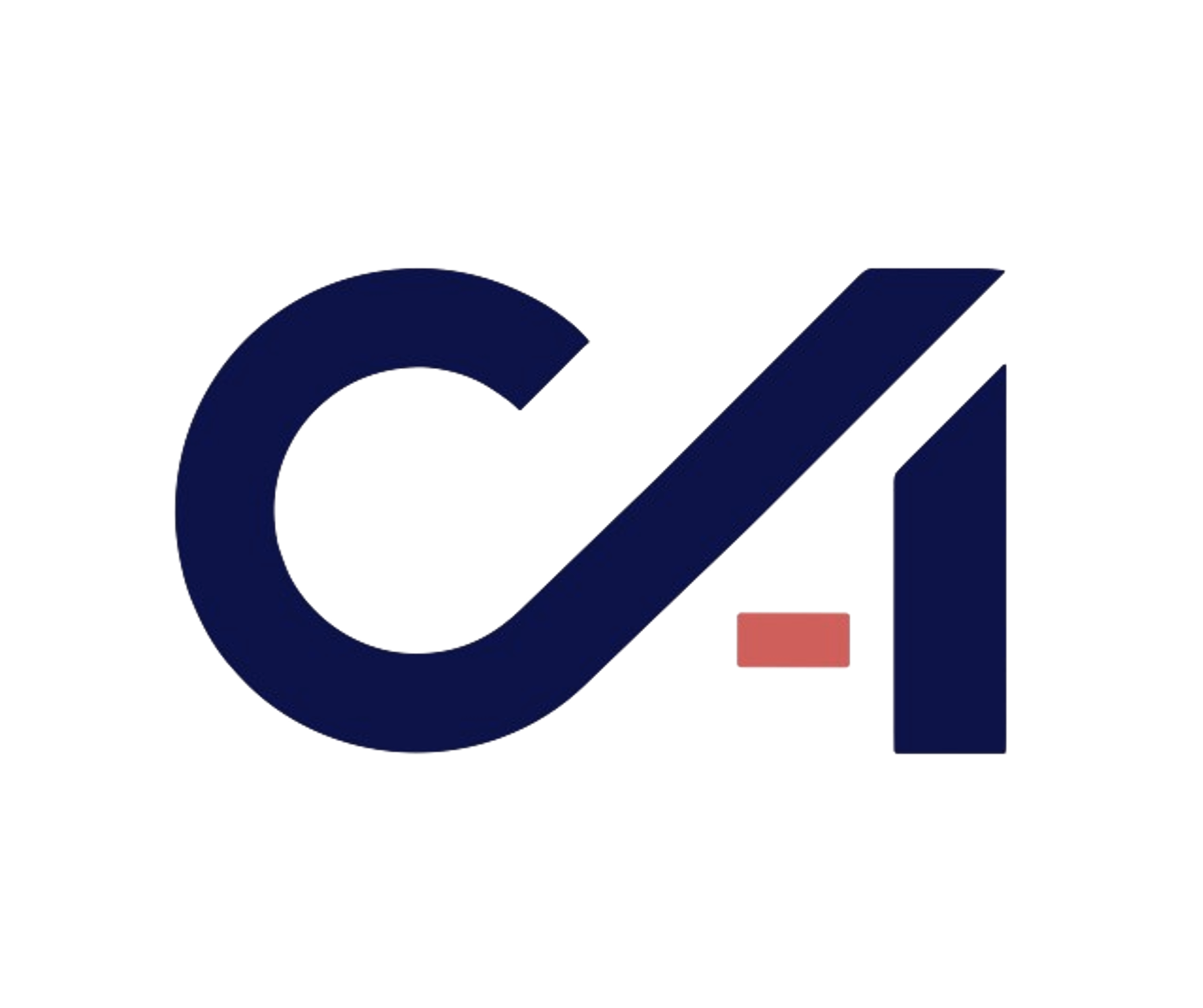
How AI is Transforming Digital Marketing and SEO
Artificial intelligence (AI) is revolutionizing many industries, and digital marketing is no exception. From recommendation algorithms to chatbots and data analysis, AI has become a powerful tool for optimizing online marketing and search engine optimization (SEO) strategies. But how exactly is this technology impacting digital marketing and SEO? Here’s an overview of the key transformations underway.
1. AI and Digital Marketing: Increased Personalization
One of AI’s major contributions to digital marketing is personalization. By analyzing users’ online behavior, AI enables hyper-targeted campaigns that meet the specific needs of each consumer.
a) Targeted Ads and Content Recommendations
AI tools can analyze thousands of data points in real time, providing better insights into consumer preferences and habits. This results in personalized recommendations, like those seen on platforms such as Amazon or Netflix. Similarly, online ads become more effective as they are targeted with increased precision, offering users more relevant experiences.
b) Improved Advertising Campaigns
AI also helps enhance advertising campaigns by automating and optimizing bids for online ads. AI-powered tools like Google Ads and Facebook Ads use algorithms that adjust bids in real time to maximize conversions while reducing costs.
c) Chatbots and Customer Experience
AI-based chatbots have become essential tools for improving the user experience. They can respond to customer inquiries 24/7, analyze consumer needs, and provide instant solutions. These virtual assistants allow businesses to be available at all times, enhancing customer satisfaction and loyalty.
2. AI and SEO: A Revolution in Search Engine Optimization
SEO is another area of digital marketing undergoing significant changes due to AI. Search engine algorithms, like Google’s, are becoming more sophisticated and incorporate AI models to provide more relevant and accurate search results.
a) AI’s Impact on Search Engines
Google has been using AI for several years through algorithms like RankBrain and BERT. These technologies help the search engine understand the context of users’ queries and deliver more appropriate results, even for complex or ambiguous searches. This alters how SEO professionals must optimize content.
b) Content Optimization with AI
AI makes content optimization smarter. AI-powered SEO tools like Surfer SEO or Frase analyze top-ranking pages and offer recommendations on content structure, keywords, and even frequently asked questions (FAQ). These tools help create content that is better suited to search engine requirements while addressing user intent more precisely.
c) Voice Search and Conversational SEO
With the rise of voice search through virtual assistants like Siri, Alexa, and Google Assistant, AI is having a major impact on SEO. Users’ queries are becoming more conversational, and SEO specialists must adapt their strategies to include natural expressions and long-tail questions. AI helps analyze these queries and provide content that effectively addresses them.
3. AI, Automation, and Data-Driven Decision-Making
Automation is one of AI’s key benefits for digital marketing and SEO professionals. It helps streamline many repetitive tasks while offering more in-depth analyses for informed decision-making.
a) Task Automation
AI-powered tools can automate many SEO-related tasks, such as keyword performance analysis, ranking monitoring, or identifying broken links. This allows SEO professionals to focus on more strategic activities.
b) Predictive Analytics
Through predictive analytics, AI can analyze historical data and identify future trends, allowing businesses to adjust their strategies accordingly. For example, a company can use AI to predict which products or services will be most popular in the coming months and tailor its marketing and SEO efforts accordingly.
c) Automated A/B Testing
AI also facilitates A/B testing by automating the process and quickly analyzing results. This allows businesses to test different versions of ads, web pages, or email campaigns to identify the most effective ones.
4. Challenges of AI in Digital Marketing and SEO
While AI offers enormous advantages, it also presents challenges for marketing and SEO professionals. Algorithms are constantly evolving, which can render certain practices obsolete overnight. Additionally, increased reliance on automation can sometimes stifle human creativity.
a) Continuous Adaptation
With frequent algorithm updates, it’s essential for SEO and marketing professionals to stay up-to-date with the latest technological advancements and best practices. Continuous learning is therefore crucial in this field.
b) Loss of Creative Control
Automation and data-driven recommendations can limit marketers’ creative freedom. It’s important to strike a balance between leveraging AI tools and maintaining a human touch for authentic and creative campaigns.
Conclusion
Artificial intelligence is redefining how businesses approach digital marketing and SEO strategies. By automating tasks, personalizing campaigns, and optimizing content, AI helps increase efficiency and better meet user expectations. However, the rapid evolution of technology requires professionals to remain vigilant and continuously adapt to stay competitive in this ever-changing landscape.
AI is undoubtedly an essential tool for companies looking to improve their online presence and anticipate future trends. The key lies in intelligently integrating these technologies while preserving human innovation and creativity.
Request A Call Back
Effortlessly connect with us. Fill the form, and we'll promptly call you back. Your convenience matters.








